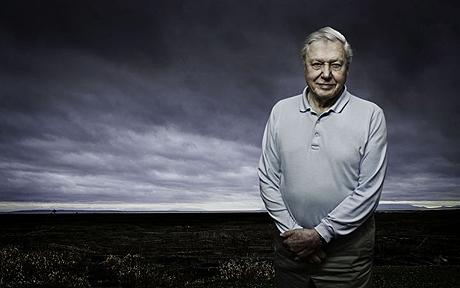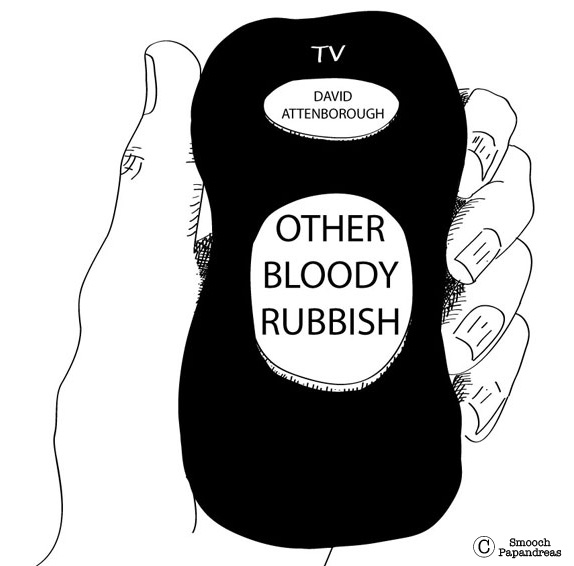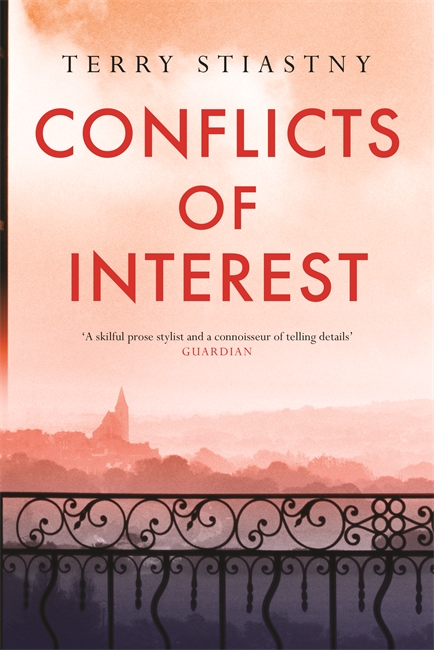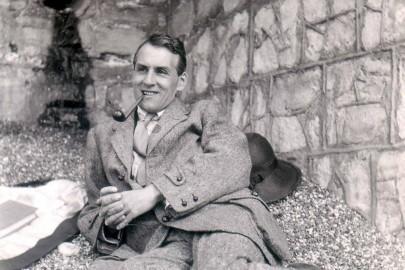As the world’s population hits 7 billion, Brit finds David Attenborough celebrating Earth’s most anti-human places…
There is no major problem facing our planet that would not be easier to solve if there were fewer people and no problem that does not become harder — and ultimately impossible to solve — with ever more.
David Attenborough – People and Planet – a lecture to the Royal Society of Arts, March 2011
We may now be seven billion strong but you can still get away from us. David Attenborough began his latest BBC epic Frozen Planet (BBC One – Wednesdays, 9pm) at the North Pole and ended it at the South, surrounded by nothing but white and wind. Not an anti-capitalist in sight (except, perhaps, Attenborough himself).
He is well into his eighties now. Extraordinary longevity, hard work and a voice as evocative as Bill McLaren’s have earned him his status as one of the British media Untouchables. Like Stephen Fry or Robert Winston, he straddles populism and seriousness. The wildlife programmes for which he acts as frontman provide to the licence-payer (in return for the considerable sum invested) visual grandeur, entertainment and a fine sense of moral superiority – one feels that merely by watching one is somehow helping the planet, unlike those selfish plebs glued to soap operas or Sky Living.
Attenborough has done an awful lot of these series but perhaps it was 2001’s The Blue Planet that marked the watershed, when technology took them from interesting and enlightening to eye-popping and mindboggling. Frozen Planet continues the upward trend, the opening episode including unreal, super high-definition ice landscapes, roaming glaciers and crystal-blue Arctic melt-lakes. Soaring Coldplay-ish tunes soundtrack the majesty. This is was what big tellies are for.
We also saw some animals – wolves hunting bison, polar bears mating and fighting, killer whales deviously knocking seals into the water so they could eat them. All gobsmacking, all wondrous, all, as ever, hopelessly anthropomorphized by Attenborough’s narration, which tells us what the beasts are thinking in their clever beastly brains. Having fought off his rivals and squired his mate, the male polar lumbered off, probably, we were informed, “relieved” to get back to his solitary existence.
Nature is viciously cruel (no, not just indifferent, dammit, cruel. It might not mean to be, but it is). I’m not saying that seeing polar bears or killer whales in action as ‘glorious’ or ‘beautiful’ is invalid, just that it’s pure human romanticism, as is all that Born Free and Circle of Life stuff. If you want to see happy animals you have to go to a modern zoo, where they live ten times longer than is ‘natural’ and get their meals brought to them on trays.
In the wild, virtually everything lives a terrified short life on the brink of starvation and, to the closest approximation, every species that has ever existed is extinct.
Which, of course, is exactly what should have happened to homo sapiens long before now, if you believed certain thinkers. As David Attenborough wrote in the New Statesman:
There have been prophets who have warned us of … impending disaster. One of the first was Thomas Malthus. .. His most important book, An Essay on the Principle of Population, was published in 1798. In it, he argued that the human population would increase inexorably until it was halted by what he termed “misery and vice”. Today, for some reason, that prophecy seems to be largely ignored – or, at any rate, disregarded.
That mysterious ‘for some reason’ might be explained by the fact that Thomas Malthus got it completely wrong. When he wrote about the overcrowding that would soon exhaust the planet’s resources, the human population was a paltry one billion. Malthus’ heir, Paul Ehrlich, was also very wrong, predicting many specific disasters in his 1968 book The Population Bomb that failed to come to pass.
Both Ehrlich and Attenborough are patrons of Population Matters, an organisation devoted to reducing the number of humans on the planet. My advice is: be suspicious of any organisation set up with the express aim not of improving humanity’s lot, but of curbing its numbers. Some of their suggestions are laudable, such as providing education to women worldwide. This happens to reduce birth rates but educating women is a good in itself and requires no further justification; it isn’t a means to an end. The neo-Malthusans are popping to the fore again as we hit 7bn but the overall number means nothing, except as proof of our triumphs in reducing mortality rates and fighting hunger and disease, since some nations might be overcrowded and underfed but others export resources and, ageing, need more babies not fewer.
Attenborough exudes Old Beeb paternal wisdom as he gives us the Science Bits on Frozen Planet, but it seems he shares the Antarctic’s hostility to homo sapiens. Of course, Population Matters will argue that the purpose of limiting population is to improve the quality of life for those who do get born. But the waters are muddied by a range of other supposed benefits, including preserving endangered species and combatting climate change. I’ll bet there’s a hardline wing of Population Matters (and I’m not suggesting Attenborough is on it) whose idea of utopia is a posthuman Earth where the weeds grow unmolested. You wouldn’t want to give them any legislative powers.
The ultimate failure of Malthus and Ehrlich is a lack of faith in humans. Of course we’re capable of horror but if you want to find kindness anywhere on the planet you’ll need to turn to your own species. And your natural wonders are all very well but don’t forget the Sistine Chapel, the works of Shakespeare and Beethoven, St Paul’s Cathedral (when you can get the anti-capitalists out of the way of it), rock ‘n’ roll and The Dabbler. And Frozen Planet, a fine piece of human romanticism. Glaciers do have great beauty, especially in artificial, computer-enhanced high definition, but only people can see it. Don’t wish us away too soon, David.














‘If you want to see happy animals you have to go to a modern zoo’
Hmm…well it’s a few years since I have been, but my memory of zoos does not lend much support to this idea. Morose looking lions and tigers drifting about with dead eyes and expressions (as much as you can tell) which say, to me at least, ‘I would rather be running after an antelope on the Serengeti, than moping about here being fed sweets’.
And the idea that if we need to see acts of kindness, this can only be dispensed by our own kind, is also wide of the mark I feel. Watching birds care for their young is just one example that springs to mind on this damp morning. Doubtless Nige will chime in later with a view on this?
MM, have you ever read ‘Life of Pi’? There’s a brilliant defence of zoos in there that really hits home
Your second point (about birds feeding) is an anthropomorphically constructivist one, as kindness is a concious act
I’m no particular fan of the narcissistic “making of” add-on programmes that are becoming popular (the Doctor Who ones assumed before the fact that what they were doing was simply marvellous, and once I discovered that I didn’t agree at all, well..) but the 20 mins or so at the end of Frozen World episodes I’ll make an exception for. What people are now prepared to do, just for a telly programme: and it includes spending Xmas Day in an ice cave in Antarctica that could fill with poisonous gas at any moment.
The basic Paul Erlich vs Julian Simon argument is one of the most fundamental of the times, and I must admit I come down for Simon purely because I don’t like the cut of Erlich’s jib, not at all. The terms of the abortive “second wager” especially smack of changing the subject: resource depletion is so last year, darling, and simply everyone’s talking about global warming now. So let’s bet on that (and have the global warming extremists turn on you, Julian, in your final illness).
I think I’m right in saying that the UN’s much trumpeted 15bn population estimate is actually the worst case scenario, and the likeliest, on current trends, is an increase to 10bn followed by a fairly rapid decrease driven by falling fertility in what’s now the Third World. It won’t make Population Matters happy, though.
I read the lowest estimate is a decrease to 6 bn. Fertility rates are declining all over the world.
With you on those ‘making of’ bits. Those camera-men are crazy, but the results astonishing.
By ‘modern’ zoo I rule out the old concrete ‘n’ steel jobs of the good old days and refer to today’s eco theme park style efforts, even more luxurious than human prisons.
As Worm says, the Life of Pi does indeed include a very well made explosion of the ‘Born Free’ romantic myth of the joy of wide open spaces. Most animals live in tiny territories no bigger than an enclosure, over which they fight their beloved cousins endlessly. They chase antelopes etc because otherwise they would starve to death.
And I take a Dawkinsian view of birds caring for their offspring – pure selfish instinct. True selfless kindness can only be found amongst human volunteers.
and Cocker Spaniels of course
Thanks for the tilt toward Life of Pi, Worm.
But I had no idea that the donation of kindness was always a conscious act. I’m sure I can remember ‘being kind’ without necessarily being aware of it? But perhaps you are right – if I can remember acts of kindness dispensed by myself, I must have been conscious of them!
My point, poorly made perhaps, was that the attention that birds (particularly) and animals lavish upon each other seems to be part and parcel of their very existence. With ‘us’, the natural flow of goodwill seems more of a learned process if, as in some individuals, it exists at all?
The ultimate failure of Malthus and Ehrlich is a lack of faith in humans.
I think it has to run deeper than that. I’d like to avoid simplistic charges of human self-hatred, but mere lack of faith in human creativity and potential wouldn’t explain the absence of relief, celebration or even acknowledgement when their successive doomsday scenarios are proven wrong. They (neo-malthusians, climate change advocates, Club of Rome types, etc.) are much like millenialists. When the predicted apocalyptic catastrophe doesn’t arrive, the reaction is a brief bout of confusion and denial. Things like the Green Revolution aren’t human triumphs, they are a kind of cheating of…what exactly?
They may argue that “the purpose of limiting population is to improve the quality of life for those who do get born”, but I like to hear their shrinks’ take on that because it makes absolutely no sense in light of the fact that prosperity usually accompanies population expansion and the seven billion of us are collectively much better off than than the one billion of Malthus’s time, notwithstanding the current fuss about obscenely rich bankers. There are many modern progressive bien pensants, especially in France and Germany, who seem to (unlike their forebearers) be uneasy with prosperity itself, or at least very reckless about undoing it. But I think the heart of the matter is that they, like old throne-and-alter conservatives, simply can’t abide change and dynamism, and they have developed an entire theology to protect themselves from what their lyin’ eyes tell them. They remind me of the medieval Church with its theory of economic stasis based on land and gold and the conviction that wealth was a closed system. When those new-fangled banks out of Lombardy started to “invent” money and stimulate commerce, the reaction was well, reactionary. Not “Wow, good times a-comin”, but charges of legerdemain. It some senses they are still at it. But at least the Church gave us Chartres and the promise of an agreeable hereafter.
Oh Brit, I shall love you for ever just for this.
Attenborough and the others of his ilk – for example Tony Soper and Sir Peter Scott – have always occasioned a cold shiver down my spine when I hear(d) them opine on humanity’s place on this planet. They really don’t like us and yet my point of view has been greeted like an Edward Bond play in a Poor Clare’s convent. (Just for the avoidance of doubt, I have met, lunched with and spoken to all three of the above, so my views are ‘in context’.)
The exasperating thing is the absolute sense of certainty, as in your opening quote. There is no sense that they can see that the best of us could only hope to know 0.5% of what there is to know and yet they, the 99.5% ignorant presume to lecture the 99.99% ignorant on their awful ignorance. Make of that what you will, but historically that ideological stance has been bloody dangerous for the rest of us.
The neo-Malthusians are indeed a gruesome lot and we do well to beware of them, even when they seem as cuddly as Sir David, Usually, a scratch ‘n’ sniff exercise will uncover one or more of the following: a creepy sort of almost something a tiny bit like maybe racism (it’s evidently the wrong sort of people who are having all those babies); boneheaded anti-Catholicism (we’re all going to die horribly and it’s all the fault of Benedict); and something that you can only call inverted speciesism (if there have to be humans, then please, Gaia, let them be as few as possible).
The basic mistake is to see human beings as simply a drain on resources, with no recognition of our amazing productive capacities. Who knows, perhaps one of the extra billions will come up with a cure for cancer — although the bods at Population Matters would probably see that as cause for further despair.
Also — and this may be the purest ignorance on my part, in which case I’m happy to learn better — I’ve often wondered at the extraordinary confidence with which pundits bandy around world population figures for 200, 2000, or 20,000 years ago. How can anyone possibly know? How can anyone possibly have the faintest idea? Estimates given for the inhabitants of, say, Shakespeare’s London always vary enormously, so what can we know about Borneo or the Congo basin at the same period? I even have to wonder about present-day estimates. One of my first jobs in reference publishing was to trawl through all sorts of official and unofficial population statistics and come up with plausible sounding figures for towns, cities, regions and countries across the globe. It didn’t take long to realise that many of the figures might as well have been made up and some of them undoubtedly were (in some countries, and not only developing ones, local numbers appear to be routinely inflated as this increases the grants from central government). But as I say, maybe somebody out there knows a thing about demographics and can tell me when I’m talking nonsense …
Speaking as a London-loving, Manchester United-supporting Blairite, I’ve been on the wrong end of pretty much all right-thinking opinion for the whole of my adult life, but it does mean that I’ll never underestimate the seductiveness of getting in amongst the dinner party winners. (The neck-craning stories I could tell you from 2003 as Labour members desperately tried to find out what “everyone” thought about Iraq without having to risk an opinion themselves). Erlich’s onto a major winner here. There are just so many great components to his position:
1. It’s pessimistic, and pessimism always sounds clever, regardless of facts.
2. It’s “environmental”, of course
3. It’s vaguely anti-American, which brings even some natural British conservatives onside
4. Because it coincides with the (genuine problem) of e.g. Amazonian native peoples running up against e.g. loggers, it’s vaguely anti-imperialist, which, since Iraq, gets you major bonus points on its own.
5. Capitalists are Destroying The World! The Capitalists are those other people over there!
6. you get my gist.
Your argument can always be wrong so long as your fashion is always right: I think the case for man-made global warming made and action essential, but that doesn’t blind me to the way that the fashionable approach to the issue has rendered almost all of such action politically impossible. Subliminally, that might have been the point all along: opposition is easy and fun. Getting one’s hands dirty trying to marshal conflicting interests towards an unsatisfactory result isn’t and never was.
For Stephen Leacock’s take: http://rpo.library.utoronto.ca/poem/1283.html
I assume that as long as homo sapiens has been around having an influential group of people in the tribe who have a pessimistic view of human survival has proven useful. Helping everyone else to think about and prepare for the worst would make it less likely that it would happen. However, perhaps it’s not as useful now that humans live in what is effectively a self-built modern zoo rather than the wild?
…aka religion…
Excellent post Brit. Attenborough’s voice alone can seem to undermine any criticism. We’ll just have to send the messy, noisy and ill-bred people (anti-capitalist protesters & Man Utd fans :-)) to another planet.
In George’s link above I see that Malthus “…had a hare lip and was more or less unintelligible to his hearers. This, however, is hardly a disadvantage for a professor of political economy.”
Great stuff.
Nature is viciously cruel (no, not just indifferent, dammit, cruel. It might not mean to be, but it is). I’m not saying that seeing polar bears or killer whales in action as ‘glorious’ or ‘beautiful’ is invalid, just that it’s pure human romanticism, as is all that Born Free and Circle of Life stuff. If you want to see happy animals you have to go to a modern zoo, where they live ten times longer than is ‘natural’ and get their meals brought to them on trays.
Reminds me of something Nige posted a while back on Cheeta, the simian star of Tarzan fame. In his autobiography he tells the heart-wrenching story of his first hand experience of life in the wild (Cheeta that is, not Nige).
now that humans live in what is effectively a self-built modern zoo rather than the wild?
Which reminds me of another important part of their catechism. Anyone who thinks that warm, healthy, munificant and interesting self-built zoo is a step forward is mistaken and more than a little disordered because he doesn’t understand we all evolved to be hunters and gatherers.
Brilliant stuff, Peter, Recusant, JL and James H.
And thanks all, I never realised there were so many fellow Attenborough-heretics out there…
There was an article in last Sunday’s Observer written by someone who’d spent a few months in the Arctic, which James linked to the other day. I’m afraid I didn’t share his positive view of it:
“Ashamed and embarrassed”? For a start, I don’t recognise that sketch of a London childhood.
His earlier descriptions suggested, at least to me, that life in an Arctic wilderness has its compensations but can be tough, boring and depressing.
The corrupting influence of “our world”, no doubt. But no-one forced them to seek this form of entertainment and abandon whatever they were doing before. He also notes that, much like you and me, the natives don’t like to work too hard:
Sounds an interesting place for a holiday but hell of a place to live. Who do you think has a more realistic view of these life-choices, little Ane-Sofie Imiina or our tourist author?
http://www.guardian.co.uk/world/2011/oct/30/life-greenlands-polar-desert?INTCMP=SRCH
Good to know government cuts haven’t prevented such vital research into…er… whatever:
“Stephen Pax Leonard’s research was funded by the British Academy and the World Oral Literature Project”
What a complete tool.
Pooter goes polar
Given his inability to find ‘elderly folk…telling stories’ I assume the World Oral History Project drew a blank.
A countless number of pieces like this must have been written since the advent of the noble savage a few hundred years ago.
Aren’t these reactions just a tad extreme? One would have to travel and spend the time out there to discover that there’s nothing to discover, and I can easily visualize an article on this very website decrying the tragic loss, unrecorded, of the very oral cultures Pax Leonard was in search of. I can even visualize the comments it would generate: lots of stuff about how awful and homogenizing the modern world is etc etc.
Indeed… a few months back I wrote a review of the Chukchi Bible for this site… that’s a book very much aware of the disappearance of such cultures, written by the grandson of a Shaman. As Gaw says it’s a complex issue, and life in the Arctic is/was brutal and harsh.
This jolly boy by contrast is a condescending romantic who likes to badger noble savages and then gets irritated when they show no interest in his polar Richard Briers fantasies of The Good Life.
He is, in other words, a tool.
What I object to is the instrumentalising of this Arctic people – they’re used as a stick to beat us with. It does justice to neither us nor them.
And I do mourn the loss of such oral cultures. But it’s surely a more many-sided process than the stock one he suggests.
(Sorry if this is a bit staccato – phone problems).
Commentators like him would rather not admit that, on the whole people, prefer living in a modernised world. This preference is continually discounted as it weakens the case for there being practicable radical alternatves.
Lawrence of the Tundra. This is so English Oxbridge, but they pretty much always come home in the end.
In analogizing the unapologetic pig-headedness of the likes of Erlich and Attenborough to millenialists, it appears I was being too hard on the millenialists
Setting context aside for a second, “Lawrence of the Tundra” sounds excellent. Almost makes me want to raise the Inuit against their Canadian oppressors. At any rate, now I know what I’m going for if I ever make it to the Lords…
Over on the other side of the heaving Atlantic, Sigourney Weaver* did the voice over for the The Blue Planet. The congealed combination of funereal certainty and condescension put me off well before the end of the first episode.
Being lucky enough to often enjoy a bird’s eye view, I can’t help but notice how empty much of the place is. Japan, for instance, is quite crowded in the flat bits, of which it doesn’t have very many, but otherwise is essentially devoid of people. I have read somewhere that if *every* example of Gaia’s saddening burden was shifted to Texas, the population density would be that of London’s.
Where Sir Attenborough, certainly in no small amount of comfort, probably lives.
Everything Population Matters has ever said can be condensed into one sentence: Just the right amount of me, way too many of you.
*Completely OT: Sigourney Weaver is unmistakably the voice of the Runway Awareness and Advisory System — a piece of cockpit kit that is supposed to prevent future Tenerife’s. How the heck did she get that gig?
Forgot: for an outstanding corrective, read Matt Ridley’s book “The Rational Optimist”.
What a cheery lot. Doesn’t anyone here have moments of misanthropy, look at mankind’s works and despair. There’s plenty of hideousness to every Taj Mahal – look at the outskirts of most modern cities, for instance. Look around you when you commute.
One of my favourite quotes:-
“You yourself, don’t you find it a beautiful clean thought, a world empty of people, just uninterrupted grass, and a hare sitting up?” D.H. Lawrence Women in Love
Seven billion people will war over resources.. The twentieth century’s record of wars and slaughter gives me no optimism at all about what will happen to our own civilisation – after all, how many have ended in the past, and probably fairly horribly.
Also, some great magma explosion may wipe us out – Yellowstone Park is supposed to erupt any day – so much for whatever we’ve made after that. Or, it might be an asteroid crashing into the earth, and some 100s of millions years in the future some creatures will be watching CGI representations of what paleontologists think we might have looked like.(unfortunately the fossil they will work from is Jordan, which gives very odd ideas of what shape human females were).
Seven billion people will war over resources.. The twentieth century’s record of wars and slaughter gives me no optimism at all about what will happen to our own civilisation – after all, how many have ended in the past, and probably fairly horribly.
Speaking of correctives, By no small distance, the best book I have read lately is Stephen Pinker’s The Better Angels of our Nature.
Au contraire, Rosie. This is the finest set of comments I’ve ever read on a blog.
It demonstrates perfectly the difference between the grumpy cynicism of the conservative and the much nastier anti-humanism of the progressive.
Or to put it another way:
“You yourself, don’t you find it a beautiful clean thought, a world empty of people, just uninterrupted grass, and a hare sitting up?” D.H. Lawrence Women in Love
… A conservative thinks this every morning on the commute; but only a progressive would enthusiatically legislate to bring it about.
I’m not anti-human or hate people – I’m just scared we’ll soon be knocking f*** out of each other over the world’s remaining oil reserves.
If you put everyone in the world in Texas, you’d get a population density something like that of central London today — and the rest of the world would be empty.
We aren’t anywhere near the carrying capacity of the planet, and the best guess we have today is that we never will be.
That’s actually what scares me. We have no idea how to run a healthy economy with a dwindling population. People assume, for some reason, that it’ll be easy, but there’s absolutely no evidence for that. Fortunately, the Japanese are running the experiment for us.
If you put everyone in the world in Texas…
…then we’d all enjoy our New England vacations more. Seriously, David, what is the significance of that? We’re on the same team, but I’m having a little trouble understanding how that show-stopper is going to win us converts.
Rosie:
Brit nailed it. When the reactionary curmudgeon says we’re all going to Hell in a handcart, he means the neighbour’s kids are offensively unruly and he can’t open the absurd air-sealed packaging. It takes a rational progressive to fully live out the promise of the Enlightenment.
Oh, we’re all rational progressives: it’s just that the majority of the really glaring problems in our society were solved by 1976. If you were to take the most dyed in the wool modern reactionary around e.g. the oil furnaces at Swindon Works in 1911, they’d be organizing a strike within the hour.
There are two downsides to this.
1. I think the British get bored with things being OK and safe.
We’d kill to get Callaghan’s last set of economic results now. But where’s the excitement in that? We’re bored: let’s call it crisis.
2. With the big problems out of the way by 1976, there’s not a lot for the politically interested to get their teeth into, even at European level. So everything devolves to dinner party conversation. But with the stakes low, the heat of the debate runs higher and higher. And most people get fed up and duck out. Can’t blame them. But when a real problem comes along, like global warming, which needs a lengthy, measured, national conversation, it falls instead into the hands of the few left still interested in politics and an extremist bunfight ensues.
I think global warming’s happening. I want action taken. But even I can’t bear to spend more than a couple of minutes following the issue, and when I hear someone like Attenborough say something that I might even agree with, my first response is to swear under my breath and change channel.
If any country’s capable of having the conversation, it’s surely the British, but we just can’t seem to find the right note. Not for the time being.
Or, in other words, our politics are so bitter because the stakes are so small.
Peter: The planet is empty.
Yes, I understand that. But if everyone were in Texas, they’d just say everyplace else was a unique, pristine and extremely delicate part of the biosophere.
Oh dear, reinforcing James’s point, we’re straying into a couple of the blog topics of doom: left vs right and global warming. In fewer than 10 comments time someone will be compared to Hitler.
Gaw, you’re just saying that to take attention away from the crimes of Israel 😉
What did we do before Godwin? Did one “lose” in Times Letters to the Editor on mention of Napoleon or the Kaiser?
Too many humans, if you ask me. What do we need with 70 million British? 35 million would be an adequate sample. Ditto Chinese, Indians etc.
“The visionary engineer Paul MacCready has made an arresting calculation: Ten thousand years ago, human beings (plus their domestic animals) accounted for less than a tenth of 1 percent (by weight) of all vertebrate life on land and in the air. Back then, we were just another mammalian species, and not a particularly populous one (he estimates eighty million people worldwide). Today, that percentage, including livestock and pets, is in the neighbourhood of 98! As MacCready (2004) puts it:
Over billions of years, on a unique sphere, chance has painted a thin covering of life – complex, improbable, wonderful and fragile. Suddenly we humans (a recently arrived species no longer subject to the checks and balances inherent in nature), have grown in population, technology, and intelligence to a position of terrible power: we now wield the paintbrush.”
“It’s a wonderful world but it would be even more wonderful without a number of people in it.”
Wainwright (of Wainwright’s Walks)
Volunteers please!
Obviously we’ll start with the antipodeans.
Did anyone mention Wainwright ?
“These, then, were the days of Crisis. The newspaper headings appeared in larger and larger and blacker and blacker type; their effect was to stun you so that you read on in a state of torpor, which in turn gave way to extreme nervous debility; you couldn’t get things into proper perspective at all with those screaming headlines searing into your brain.”
Well, quite; but he had the excuse that he was discussing Munich…
I’ve just watched Frozen Planet, and David Attenborough could be Pol Pot as far as I’m concerned – it was stunning, especially those shots of the woolly caterpillar freezing under a mass of ice crystals and delay photography then coming to life again for 14 years before it could become a moth for a few days. What he produces is a high point for humanity – the patience and knowledge of scientists, the professionalism of the photographers, and the Reithian uplift of the BBC to bring us sights of grandeur and a reminder to our urban selves that we live on a planet of astonishing variety.
You don’t write for Spiked, do you? That is very much a Brendan O’Neill attitude. And rather cheeky, I’m afraid – how do you know what the viewers are feeling? I feel awestruck wonder at some sights, and of course the cooiness towards young mammals – polar bear cubs, seal pups, ohhhh – that most people feel. I don’t think it makes me a better person than X-factor watchers.
You’re not getting full value then, Rosie. I definitely feel superior, and would refer you to Smooch’s cartoon above.